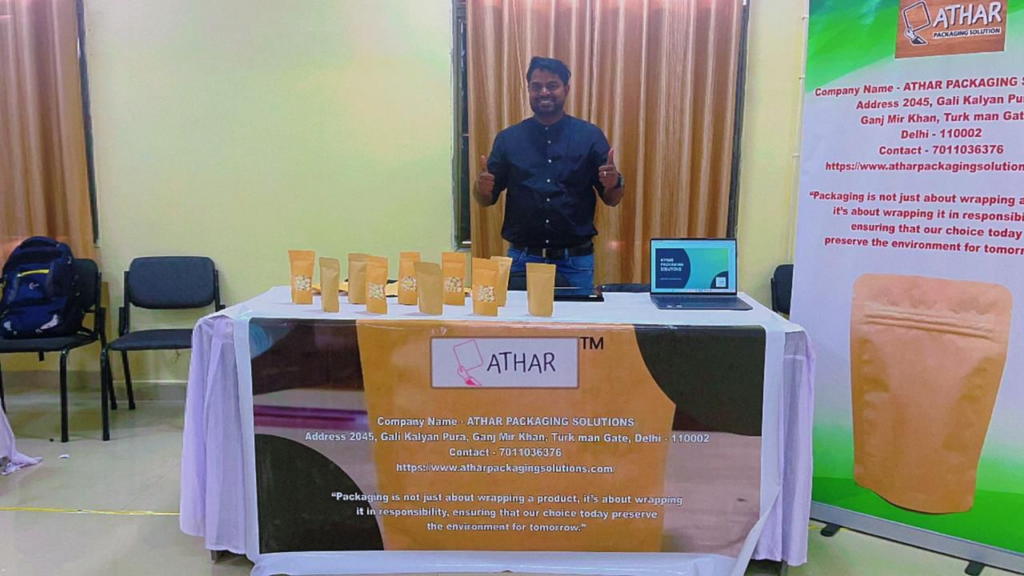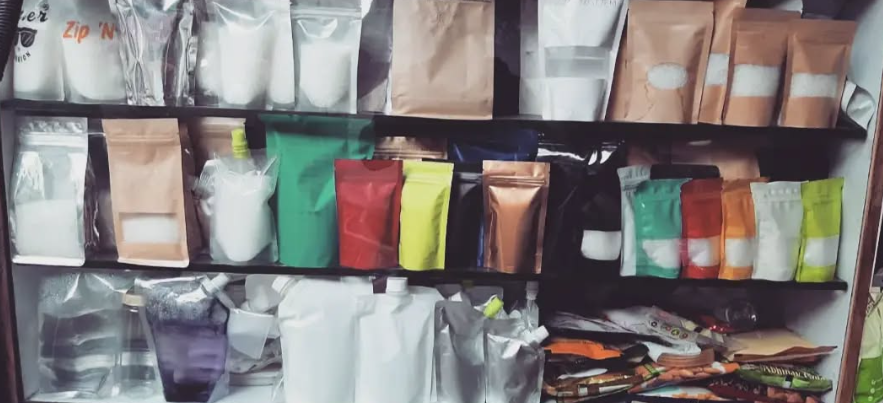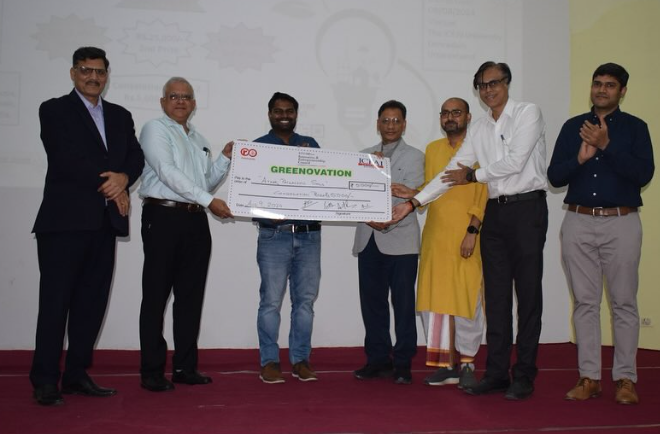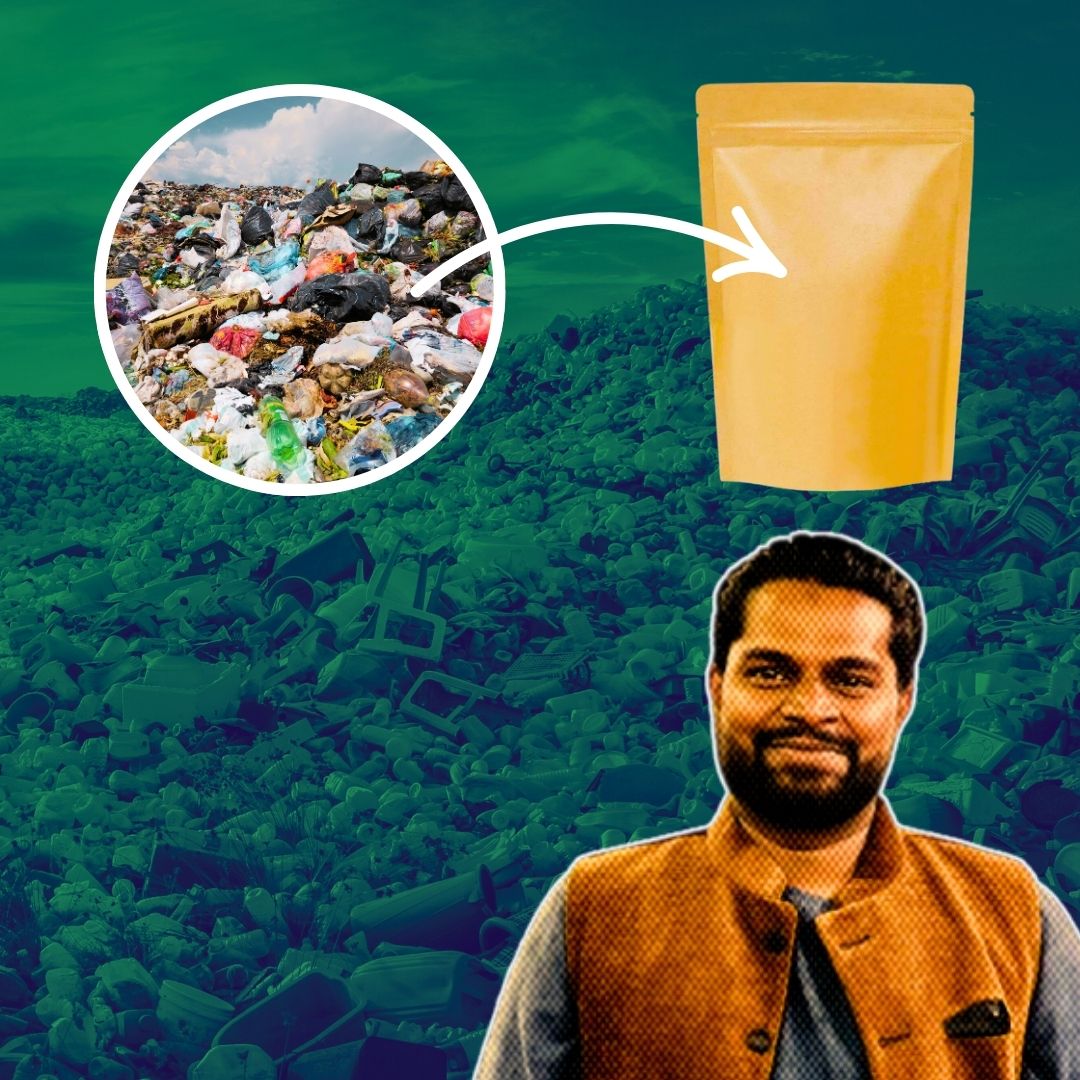India generates approximately 26,000 tonnes of plastic waste daily, presenting a significant environmental challenge that affects landfills, waterways, and ecosystems. Mohd Suhail’s Athar Packaging Solutions is transforming this waste into affordable, eco-friendly packaging, having partnered with over 700 businesses across 60 cities since its launch in 2020.
The company’s success aligns with India’s ambitious recycling goals, which aim to increase the recycling rate from 30% in 2024-25 to 80% by 2027-28 under the Extended Producer Responsibility (EPR) framework.

Innovative Solutions to Plastic Waste
Mohd Suhail founded Athar Packaging Solutions with a visionary goal: to convert plastic waste into sustainable packaging options that are both affordable and environmentally friendly. After extensive research and experimentation, he identified low-density polyethylene (LDPE), biaxially oriented polypropylene (BOPP), and other low-density plastics as the most suitable materials for recycling.
The initial challenge was to persuade companies to provide their plastic waste—a task that Suhail accomplished through persistence, education, and demonstrating the viability of his eco-friendly solutions. By making sustainable packaging affordable and accessible, Athar has bridged a crucial gap for businesses that were previously priced out of eco-friendly options, thereby promoting a shift towards more sustainable practices in the packaging industry.

Context of Plastic Waste Management in India
India is one of the largest producers of plastic waste globally, generating about 9.5 million tonnes annually, primarily from packaging materials used in food and consumer goods. Despite achieving a recycling rate of around 60%, significantly higher than the global average of about 9%, many challenges remain.
Approximately 8% of plastic waste is effectively recycled through formal channels, while a substantial portion is processed by the informal sector, which lacks proper regulations and standards. Government initiatives like the Extended Producer Responsibility (EPR) aim to enhance recycling rates significantly by mandating manufacturers to take responsibility for their products’ lifecycle—from production to disposal.
These measures are part of a broader strategy to combat plastic pollution and promote sustainable practices across various industries. As India strives to meet its ambitious targets for reducing plastic waste, innovative solutions like those offered by Athar Packaging Solutions become increasingly vital.

Community Impact and Business Growth
Suhail’s initiative has not only contributed to environmental sustainability but also created economic opportunities in local communities. By partnering with over 700 businesses across major cities like Delhi, Bengaluru, and Mumbai, Athar Packaging Solutions has fostered a network that encourages responsible waste management and promotes eco-friendly practices among consumers and businesses alike.
This collaboration has led to increased awareness regarding plastic pollution and its impacts on health and the environment. Furthermore, Suhail’s company has empowered local entrepreneurs by providing them with sustainable alternatives that are both cost-effective and environmentally responsible. The growth of Athar Packaging Solutions reflects an increasing awareness and demand for sustainable solutions in an era where environmental consciousness is paramount.
The Logical Indian’s Perspective
Suhail’s journey exemplifies how innovation can drive systemic change in addressing India’s pressing plastic waste crisis. His work not only contributes significantly to environmental sustainability but also highlights the importance of collaboration between businesses and policymakers in creating scalable solutions that can be implemented nationwide.
As we reflect on these efforts and their impact on communities across India, we encourage our readers to consider: What additional steps can individuals and communities take to support local entrepreneurs like Mohd Suhail in fostering a more sustainable future?
How can we collectively work towards reducing plastic waste while promoting economic growth? Share your insights in the comments below! Your thoughts could inspire further dialogue on this critical issue!












